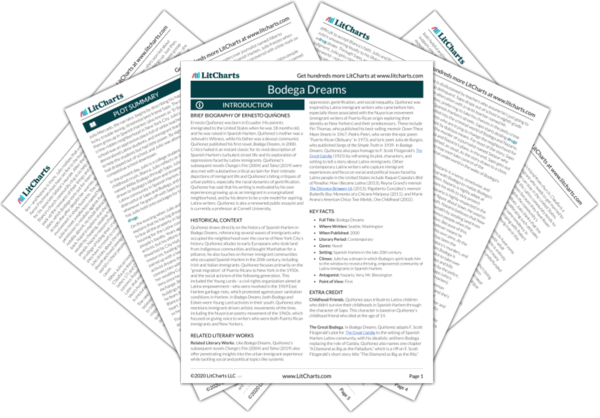Bodega’s backstory shows that he’s been involved in community activism for most of his adult life. His failed efforts to empower the community by legal means shows that city officials are corrupt and reluctant to help Spanish Harlem. Quiñonez implies, through Bodega’s voice, that when legal efforts at social improvement are blocked, activists are justified in turning to other means because they have no choice. The mantra “Que Pasa Power” is borrowed from a poem about the disenfranchisement of Latinx immigrants by Puerto Rican immigrant poet Pedro Pietri. It similarly argues that Puerto Rican immigrants are deeply oppressed and have no choice but to use whatever means necessary to empower themselves. The allusion to Pietri’s poetry also shows that Puerto Ricans have made a substantive contribution to U.S. culture, even though the white teachers at Julio’s elementary school taught the children to believe otherwise.


